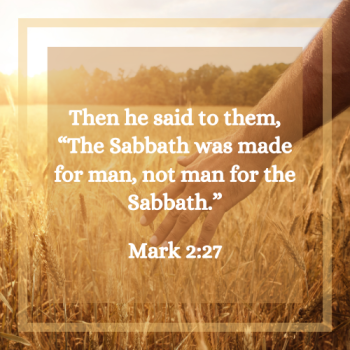One regret dear world, that I am determined not to have when I am lying on my deathbed is that I did not kiss you enough. ~ Hafiz
I am currently writing a book tentatively titled: Spirituality: What It Is and Why It Matters. The book's central idea is that the common theme of the enormous variety of traditional and contemporary spirituality is a set of virtues—habits of mind, emotion, and action—that provide long-lasting personal contentment and lead us to compassionate and generous action toward others. Here is a tiny excerpt from the working draft of Spirituality, on one of the most important of those virtues.
Gratitude plays a powerful role in spiritual life—as much in the contexts of traditional religion as in the more eclectic, less traditionally oriented spirituality of the present. Contemporary Catholic spiritual teacher David Stiendl-Rast tells us that "Gratitude is the heart of prayer." And the medieval mystic Meister Eckhart suggested, "If the only prayer you said in your whole life was, 'thank you,' that would suffice." In gratitude we find an experience, a day-by-day practice, and a way of life. It is a feeling that arises spontaneously within us, something we can consciously cultivate, and a habitual response that shapes our experiences and actions.
For a traditional example, consider how the Jewish prayer book is filled with long and complicated verbal formulas to organize the adult Jewish man's relation to God, yet the day's prayers begin with a simple appreciation for being alive: "Thank you God, for returning my soul to my body." Whatever else the day holds—a mid-term we haven't prepared for, a medical procedure, seeing our parked car slammed into by a drunk driver—at least for these few moments we will have cultivated appreciation for what we have.
Gratitude attunes us to the immense value of what actually exists now. Simply being alive, that we have our senses, or a family, or a mind. given how much there always is to be disappointed by, afraid of, or mad at, this focus requires a powerful act of mind. I will have to remember that I have a wife that has loved me for forty years, not her nasty comment at dinner last night or the way she forgot our anniversary. I will have to focus on my ability to walk, even though I've hurt my foot and can't play in the weekly basketball game I enjoy so much. I appreciate the birch tree outside my window, rather than bitterly envying the folks that get to hike in Colorado. In these mental movements I grasp what the Talmud had in mind when it defined wealth not as a particular quantity of money, but as being satisfied with what one has.
The second element of gratitude is the sense that these precious things we have are a kind of gift. Did we earn the existence of music in the world? the flowers in spring? the mysterious intelligence of our eyes? Do we "deserve" them? In the realm of gratitude we do not. That is why theistic religions teach us that "everything is a gift from God." Or why Zen Buddhist poetry often focuses on the sudden, magical loveliness of the moon on the water or birdsong at dawn.
Oddly, no matter how much more pleasant it is to focus on the good rather than the bad, we must make a repeated conscious desire to cultivate gratitude. And this is true whether we believe we are thanking our Creator or are simply enjoying the miracle that we are alive. The tendency to focus on the negative is every bit as "natural," or at least as widespread, as any capacity for joyful appreciation. As Aldous Huxley suggested, "Most human beings have an almost infinite capacity for taking things for granted." Fear, regret, a burning resentment that we were cheated out of our just deserts, desperate longing for something that is out of reach—all these possess a powerful emotional magnetism that binds our thoughts to the painful. That is why the spirituality of gratitude requires the hard, recurring choice to focus on this rather than that, to feel better rather than feel worse.
Just because it requires shifting attention from one kind of thing to another, gratitude is as much an active act of will as a moment of grace. Really meaning even the simplest prayer of gratitude is essential to developing a grateful life. (Better, the Talmudtells us, one prayer with real intention than hundreds of prayers without. And this from a religious tradition that is very strict in its prescription of enormous amounts of prayer!)
As a discipline, gratitude is enormously difficult, yet it offers profound benefits. Internally, grateful people are contented, cheerful, and able to find pleasure in the midst of difficulty.
Externally, gratitude is likely to produce a person whose acts are marked by generosity and unselfishness. The grateful man does not need to steal, because he is "wealthy." He is more likely to find his way to compassion for others and himself, which is pretty hard to feel when you are thinking about your own lack, and to take joy in the happiness of others, which is difficult to achieve when you are thinking that you haven't got what you deserve.
Like all aspects of authentic spirituality, gratitude is a task for a lifetime. There will always be something for which we can express thanks, and in all likelihood always some pain or loss on which to dwell. Each day, each moment, gives us the opportunity to choose our response. Is it not one of the great gifts of spirituality that there is always something to do?
5/25/2011 4:00:00 AM





